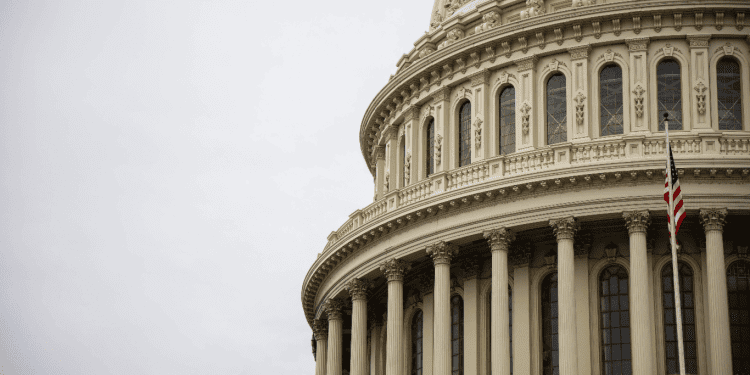A U.S. Senator introduces the “No Digital Dollar Act” to prohibit the U.S. Treasury Department and Federal Reserve from interfering with Americans’ use of fiat currency as they launch central bank digital currencies. The bill states:
“Central bank digital currencies are not considered legal tender under Section 16 5103 of Title 31 of the United States Code.”
The ‘No Digital Dollar Act’
Senator James Lankford barred the U.S. Treasury from prohibiting Americans from using fiat money after central bank digital currencies launched. The Treasury announced it had introduced a bill titled the “Digital Dollar Act” early in the year. The bill was to allow to maintain privacy regarding cash and coin transactions by encouraging digital currencies. However, the “No Digital Dollar Act” is against the Federal Reserves Bill. According to the bill,
“The bill would amend the Federal Reserve Act to prohibit the Federal Reserve Board from discontinuing Federal Reserve notes in issuing central bank digital currency and for other purposes.”
According to Senator Lankford, residents have expressed concern that the Treasury Department may phase out paper money and move to a digital dollar. He emphasized that many Oklahomans still prefer hard currency, or at least hard currency options.
“Digital money still has questions, cyber concerns, and security risks,” lawmakers added…We cannot continue to have paper money and digital money in our country and allow Americans to have their own money and choose how they spend it.”
The Act Might Fail to Be Part of the Retail Banking World
The U.S Central Bank Digital Currency (CBDC) is one step closer to reality after the White House released several reports last week. The reports analyze technical and political aspects of the digital dollar.
James Hymes, an outspoken advocate of the Federal Reserve’s digital currency, released a White Paper in June 2022.
This is a summary of the interview of Congressman Jim Himes:
I’m sure you must be busy, and it’s Friday, so let’s get right into it. It’s been a pretty intense day with the six reports published by the White House and several federal agencies or departments today. But I know you, in particular, have been talking about central bank digital currencies for quite a while now, and, of course, you published a white paper titled “Winning the Future of Money,” I think in June, right, a few short months ago. What’s your take on the multiple papers published today by the White House and the Treasury Department on this issue of central bank digital currencies?
Various central bank digital currency elements have not broken ground. These might be compelling reasons to move forward. To proceed with CBDC, ensure there is a robust network. A lot of work is required on the implementation side.
Congress is on the right track and will not necessarily pass new legislation in the coming weeks. Two years ago, most people in the halls of Congress said “digital assets” or “cryptocurrencies” would be attractive. According to Coindesk, one member said, “I am looking at you, and I don’t understand what you are saying.”














